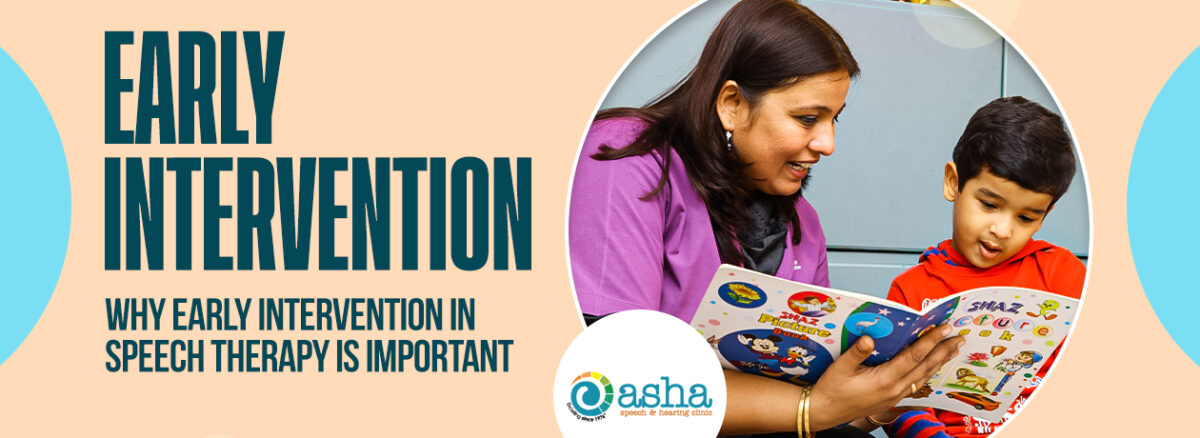Early intervention- Why early intervention in speech therapy is important
As a parent, nothing is more precious than the well being and the health of a child. It is a moral responsibility of every parent to provide good healthcare to their child. However, many parents might not be entirely aware of the advantages of Early Intervention In Speech Therapy. The truth is that early intervention is absolutely essential for achieving the best results for your child.
At Asha Speech And Hearing Clinic, we believe that “No Age Is Too Early” and with our team of Specialists, we are here to ensure that your Child has good and a healthy Life. Asha Speech And Hearing Clinic our professionals, including audiologists and speech-language Specialists, are part of an early intervention team. As a parent, if you are concerned about your child’s development, we urge you to please contact Asha Speech And Hearing Clinic for an early intervention program and Effective Evaluation. Families do not have to wait for a referral from professionals. Early intervention for language and communication issues can help children avoid future issues with behaviour, learning, literacy, and social interactions.
At Asha Speech And Hearing Clinic, we understand very well that. Infants, toddlers, and pre-schoolers have developing brains that are built to learn communication skills, early intervention is crucial in speech therapy.
The following are a few important facts about Early Intervention in Speech Therapy:
1. Healthy Brain Development:
The first three years of life are when young children develop the majority of their speech and language abilities. This education affects how the brain develops at this period. Because infants, toddlers, and pre-schoolers have developing brains that are built to learn communication skills, early intervention is crucial. To benefit from this phase of normal brain growth, therapy should be initiated as soon as feasible if there is a problem with that development.
2. Proper Remediation:
This entails fostering communication skills with your child while engaging in play and daily activities. It is the most typical result that speech and language therapy for young children with communication impairments is predicted to provide. A youngster can speak with adults and peers more effectively and experience less frustration and negative behaviours as a result of improving their communication skills.
3. Improved Behaviour:
Children with delayed communication skills may get impatient and engage in difficult behaviours to make up for their shortcomings. When communication is delayed, it is difficult to convey needs and wishes; as a result, physical responses like biting or beating frequently replace them. The intervention will offer assistance and communication facilitation techniques for your child.
4. Parents Have The Most Important Role:
Parents are given the resources they need to encourage speech and language development during early intervention. Early intervention centres on parents and/or caregivers because they consistently supply the language models that kids need to learn language and improve their communication skills. Parents can learn helpful early language techniques through early intervention so they can support their child’s speech and language development when they play, read books, and go through daily rituals like mealtime and bath time. Additionally, they can be taught certain cueing and/or feedback techniques for a variety of speech sound.
5. Make Learning Fun:
Families will be assisted in adding supports to routine activities they share with their children thanks to early intervention. This offers a variety of learning opportunities for kids, including those during play as well as other activities like getting dressed, brushing their teeth, preparing meals, eating, bathing, helping with household tasks, getting ready for bed, and many others. The family gains a better grasp of their child’s demands as well as how to break learning down into manageable chunks for their child through intervention. Children have joy learning in nearly any activity and want to learn more when they know what is expected of them and can succeed.
Conclusion
At Asha Speech And Hearing Clinic we recognise that when it comes to our child’s health and future, we all want what is best for them. We are here to offer you our Support and Guidance in making sure that your child’s life is as normal as everyone else’s thanks to our Specialties and a Devoted Team.

